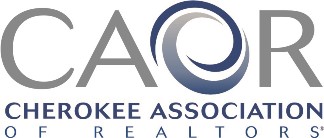Thank you Hudson & Merino, LLC for providing this great blog post.
When a property is pending sale, everyone is anxious for a prompt closing. The buyer wants to move in. The seller wants to move on. And the real estate agents want to get compensated. So, if you are involved with a property that has a Homeowners Association (HOA), be aware that TRID has changed the way lenders handle the HOA clearance letter.
Before TRID lenders did not require a copy of the HOA clearance letter. The HOA clearance letter was often obtained by the closing attorney a week or less before the closing date.
Under TRID lenders now require a copy of the HOA clearance letter at the start of the loan process. This change happened because TRID requires lenders to give borrowers an accurate accounting of the transaction, including HOA fees and costs, at the start of the loan process. So the days of getting an HOA letter a week before closing are gone.
To help speed-up closings, follow these BEST PRACTICES when you’re under contract on a property that is governed by an HOA:
- If you are the seller’s agent, advise the seller to find out all relevant HOA fees (move-in, transfer, initiation, HOA Letter, etc.) before the Purchase Agreement is executed. It’s also recommended that the seller pay for and obtain the HOA letter upfront. Since the seller is the member of the HOA, they are in the best position to communicate with the HOA and get a disclosure of all fees.
- If you are the buyer’s agent and want to ensure that the seller picks up the fee for the HOA clearance letter, be sure to put it in writing. In Paragraph H of the Community Association Disclosure Exhibit (GAR Form123), a box is provided for the parties to check whether the seller or buyer will pay for the HOA clearance letter. And Paragraph G of the same exhibit provides whether the buyer or seller will pay for the initiation, new member, transfer fees or other HOA fees.I have seen DISPUTES between the parties as to who should pay the fees to the HOA when the HOA clearance letter is ordered because these paragraphs are not marked. When Paragraph H is left blank, the cost of the HOA clearance letter becomes a buyer closing cost. To avoid confusion and disputes – which can delay the closing – Paragraphs H and G should be completed.
If the Purchase Agreement provides that the buyer will pay for the HOA closing letter, the buyer will reimburse the seller for the fee on the disclosure at closing. If the current contract falls through, the seller already has a closing letter for the next contract. The closing letter may have to be updated for a new contract, but getting an updated letter is much quicker than obtaining the initial closing letter and often there is no additional fee or the fee is nominal, like $10 or so.
- Finally, most HOAs process the order for the HOA clearance Letter only after the credit card has been processed and the fee is credited to the HOA’s account. So, if you order an HOA Letter late in the day after the HOA’s staff has left, the staff will submit the credit card for processing the next day and it may be an additional day or two until the fee is credited to the HOA’s account. It is only then – 3 to 5 days after the order has been submitted – that the HOA will start working on your HOA Letter. Again, BEST PRACTICE is to get started early.
I hope this information has been useful. My colleagues and I look forward to working with you and helping you get to the closing table as quickly as possible.
NOT LEGAL ADVICE: The above Article has been prepared for informational purposes only, and is not legal advice, and you should not interpret this Article as legal advice. Although Hudson & Merino, LLC welcomes your calls, letters and emails, please note that merely contacting Hudson & Merino, LLC will not establish an attorney-client relationship, nor will any unsolicited information you send to us be treated as confidential. Thank you.





You must be logged in to post a comment.